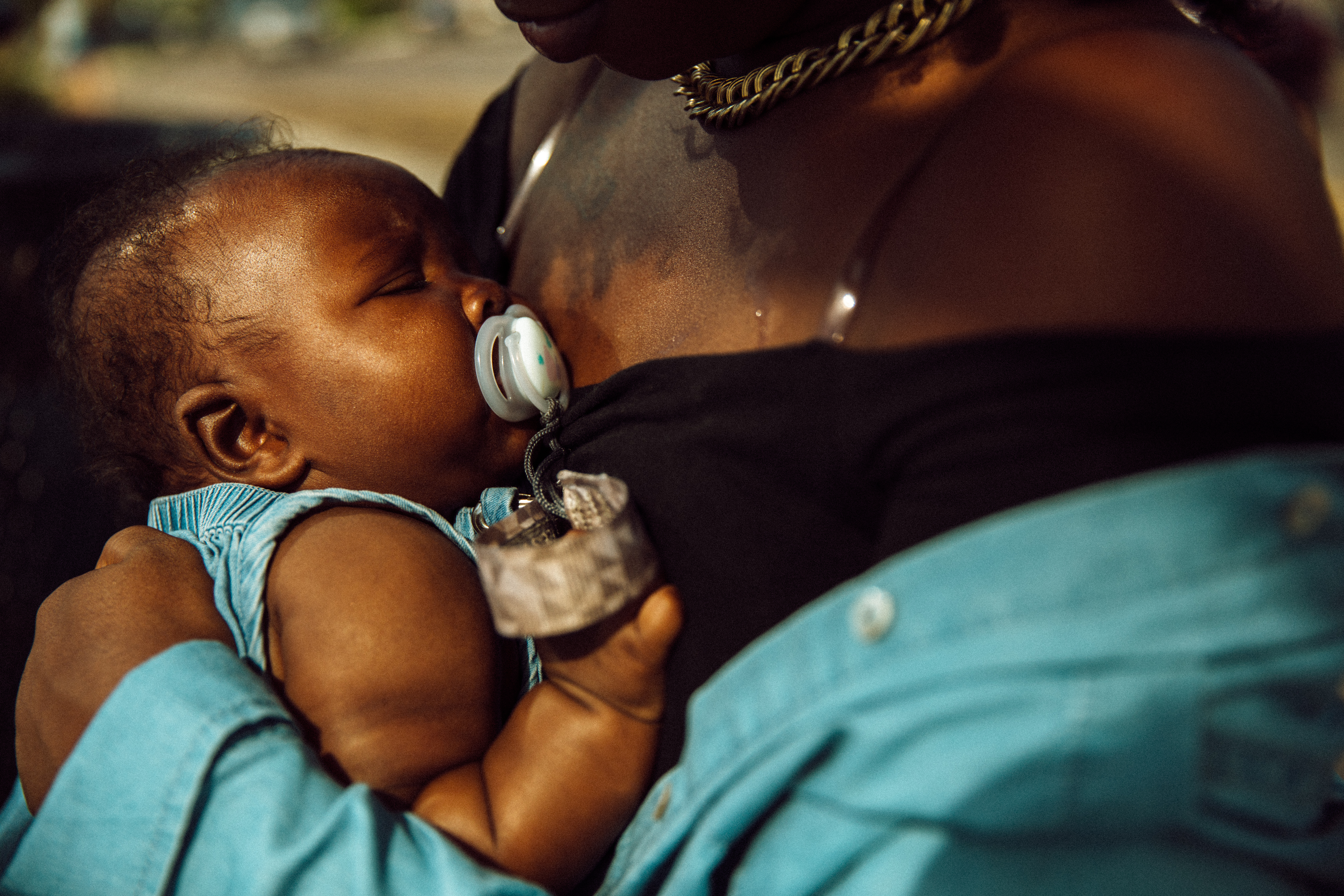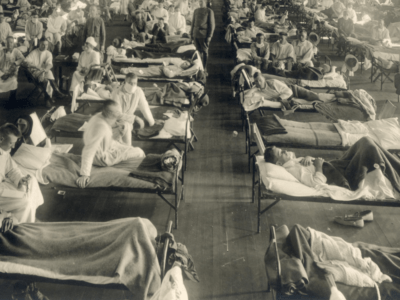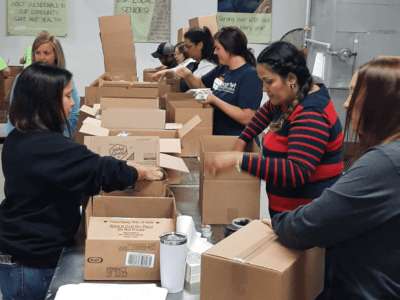All babies benefit from breast milk, but for infants born prematurely, the benefits can be even more important. Very low birth weight (VLBW) infants are typically born before 30 weeks of gestation and weigh just 3.3 pounds or less. VLBW infants often spend weeks or months in a neonatal intensive care unit (NICU), which can make it difficult for mothers to continue breastfeeding.
We recently talked with Dr. Meg Parker, a neonatologist and researcher at Boston Medical Center. She is part of a team working to improve birth outcomes and ensure early breastfeeding for the most vulnerable newborns in intensive care.
"We spend thousands of dollars every day caring for these babies in the hospital, but there is a system disconnect. There are long-term health benefits to babies if their families can be less stressed and involved in their NICU care."
Dr. Meg Parker, neonatologist and researcher Tweet
Previous researchers have found racial disparities in breastfeeding when a VLBW infant is discharged from the hospital. Dr. Parker’s research team initially hypothesized breastfeeding racial disparities existed due to differences in how various racial ethnic groups received breastfeeding support services in hospitals.
To test their hypothesis, they focused on increasing breastfeeding support practices for all families. Specifically, they increased early initiation of breastfeeding, prenatal education and skin-to-skin care. And what they found was in Massachusetts was surprising: even when mothers of all racial groups received the same breastfeeding support practices in the hospital, there were differences in breastfeeding by the time the babies were ready to go home.

When investigating further, Dr. Parker and her Massachusetts team found that more than 90 percent of mothers in all racial and ethnic groups started breastfeeding. But after the third week of hospitalization, disparities began to emerge.
Dr. Parker wanted to know why. Her team interviewed Black and Hispanic mothers to understand more about their hospital experiences and learn how hospitals can help mothers and families of VLBW infants provide breast milk for their babies.
This interview has been edited and condensed for clarity.
Q. Why were you interested in this topic?
Dr. Parker: I started working at Boston Medical Center nine years ago, and I recognized early on during my clinical work that we stress the importance of breast milk for very low birth weight infants and for medically vulnerable babies. I saw breastfeeding as something we could promote to help offset the trajectory of adverse health outcomes in this vulnerable population. I started clinical programs at our hospital related to breastfeeding work and became passionate about the topic.
Then I had my own breastfeeding experiences with my three babies. As a working neonatologist, I would be away from my baby for long periods of time. I got a lot of experience using a breast pump – and it’s really hard to do!
Moms of preterm babies have to pump exclusively for weeks or even months before their babies are old enough to suck at the breast. After the birth of my own children, I became aware of how hard breastfeeding can be and I dedicated myself to helping mothers of preterm infants.
Q: What, if anything, surprised researchers during this study?
Dr. Parker: We learned that breastfeeding is just one part of the story.
Through our conversations with mothers, we came to understand more about their hospital experiences. Moms reiterated that pumping is difficult and exhausting, and that pumping doesn’t give them the same feeling of closeness that breastfeeding can provide.
The moms also emphasized the importance of feeling welcome in their NICU. They didn’t want to feel judged in any way. It was important for providers to treat them equally. This was especially true for Spanish-speaking moms who wanted frequent communication in their language.
We also heard from moms that their family members might not understand the experience of a preterm infant mother. That meant hospital staff play a very important lactation support role for mothers.
Mothers also noted that the mother-infant separation is really difficult. To have to visit their infant in the hospital meant they were juggling transportation and parking costs, while also navigating other life priorities such as work schedules and caring for their other children.
We found that the services a hospital offers to families vary. Some hospitals provide help with parking costs. Others offer hot meals to breastfeeding moms. Some have family support or lactation support classes. We realized that those are all places where intervention can take place to support breastfeeding for mothers of preterm infants.
Looking ahead, with the support of the W.K. Kellogg Foundation, we are going to replicate our work in New Orleans and Mississippi. We intend to focus more directly on disparities in family engagement practices in hospitals.
Q: What do you hope a patient, or a patient’s family might take away from this work?
Dr. Parker: I hope families recognize that their role in the overall care for their baby is really, really important.
As a greater neonatology community, there is a shift to working more directly with families in the clinical care that we provide. We’re focusing more on engaging families throughout the process of neonatal research quality improvement projects and in the day-to-day care we’re providing. In the next ten years, I think we’ll see even more of that. We have far to go, but I’m hopeful we’re on a positive trajectory.
Q: Is there a story you want to share that came out of this work but may not have made it into the formal paper?
Dr. Parker: I was also impressed at how open our hospitals were to grappling with and addressing disparities. Our work was really open; our slideshows named the hospitals involved and their disparities. You knew how you compared to other hospitals. People were very open to seeing how they were doing, and trying to learn and brainstorm what we could do next as a community. It was a positive conversation about an important topic.
I was also impressed by the families themselves. Recently I had a nurse ask if I could come talk to a mom immediately because the mom was worried about having to move her car to avoid a parking fee. These moms would love to be more involved in the care of their infants but they face challenges like parking and transportation. We spend thousands of dollars every day caring for these babies in the hospital, but there is a system disconnect. There are long-term health benefits to babies if their families can be less stressed and involved in their NICU care. It’s going to take coordination to recognize that families are facing barriers, and they need to be addressed. Currently, our healthcare systems aren’t made to think about that. We think about the ventilator type. Or the medication we need to give to improve the baby’s care, but we don’t think about paying $10 for that mom to be there to hear more about what is happening to her baby to help her feel more confident to care for her baby’s health after leaving the hospital.
Q: What would you want a breastfeeding mom to know?
Dr. Parker: I want moms to know that keeping up their breast milk supply is difficult. It’s hard. It’s hard for moms who have babies born on time; it’s hard for moms who are going back to work and it’s even harder for moms who have babies in the NICU and who are relying on a pump. Just know that all moms can struggle with breastfeeding, and feeling exhausted and getting frustrated is really normal!
I hope moms know to reach out to their hospital staff, and to their family and friend networks. Those networks can help you stay motivated and help you keep up the good work in whatever way you’re able. We’re all very proud of whatever milk you make for your baby, and we’re your cheerleaders!






Comments